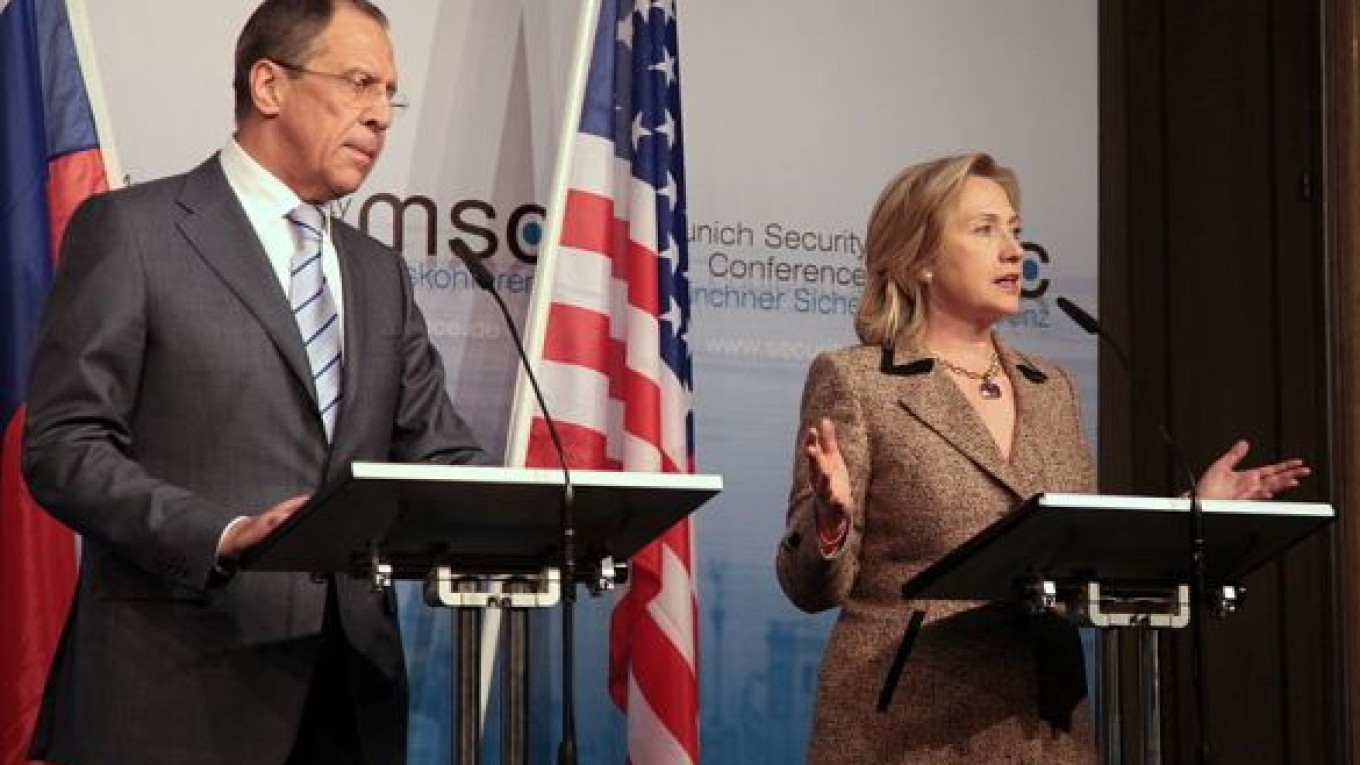Open disagreement between Moscow and Washington over human rights and democracy as well as intra-organization infighting overshadowed high-level talks of Europe's top security watchdog Thursday.
During a foreign ministers meeting of the Organization for Security and Cooperation in Europe, or OSCE, Foreign Minister Sergei Lavrov and U.S. Secretary of State Hillary Clinton accused each other's governments of not complying with the organization's principles.
In his address to the meeting's plenary session in Dublin, Lavrov complained that plans to turn the organization into a security guarantor for much of the northern hemisphere were foiled by "unilateral approaches."
As a result, the OSCE is sidelined from key events, and demands for its unity "are countered with unfriendly acts," he said, according to a transcript on his .
The minister added that conventional arms control had been "degraded" because of longstanding attempts to use arms control for political aims. Lavrov did not name any country, but NATO members, led by the United States, have staunchly resisted Moscow's wishes to increase the OSCE's regional security role, arguing that it would reduce the Western alliance's position.
Lavrov echoed comments by President Vladimir Putin, who said Wednesday that the OSCE must stop serving the interests of individual members. The 57-member group includes all European and former Soviet states, Mongolia, the U.S. and Canada.
Meanwhile, Clinton criticized Moscow and its key allies on human rights and called for strengthening OSCE institutions by ensuring their functioning without outside interference.
In her address, she mentioned the recent law that forces foreign-funded political NGOs to register as "foreign agents" as an example of "restrictions on civil society" in Russia, according to an .
During an earlier meeting with rights activists, Clinton criticized a general trend to roll back civil freedoms in Russia and other former Soviet countries.
"There is a move to re-Sovietize the region," she was quoted as saying by The Associated Press.
Lavrov, on the other hand, said Moscow was fulfilling its human rights obligations while other OSCE members were not. As an example, he pointed to police crackdowns on protests against social inequality in EU countries.
He also complained that the OSCE's election observer missions display "double standards" by sending "hundreds of observers" to some countries but only a few to others. He announced an initiative by Russia, Belarus and Kazakhstan to introduce new rules for election observers.
In a rare instance of institutional infighting, the OSCE's Parliamentary Assembly on Thursday criticized the organization's elections and human rights watchdog.
Assembly leader Riccardo Migliori complained in a speech to the OSCE ministers that the Office for Democratic Institutions and Human Rights had not adhered to the organization's principles by failing to cooperate with the assembly.
As a consequence, he said, the parliamentary assembly, which consists of lawmakers from all member countries, considered a 1997 with the Warsaw-based office invalid.
Related articles:
A Message from The Moscow Times:
Dear readers,
We are facing unprecedented challenges. Russia's Prosecutor General's Office has designated The Moscow Times as an "undesirable" organization, criminalizing our work and putting our staff at risk of prosecution. This follows our earlier unjust labeling as a "foreign agent."
These actions are direct attempts to silence independent journalism in Russia. The authorities claim our work "discredits the decisions of the Russian leadership." We see things differently: we strive to provide accurate, unbiased reporting on Russia.
We, the journalists of The Moscow Times, refuse to be silenced. But to continue our work, we need your help.
Your support, no matter how small, makes a world of difference. If you can, please support us monthly starting from just $2. It's quick to set up, and every contribution makes a significant impact.
By supporting The Moscow Times, you're defending open, independent journalism in the face of repression. Thank you for standing with us.
Remind me later.


